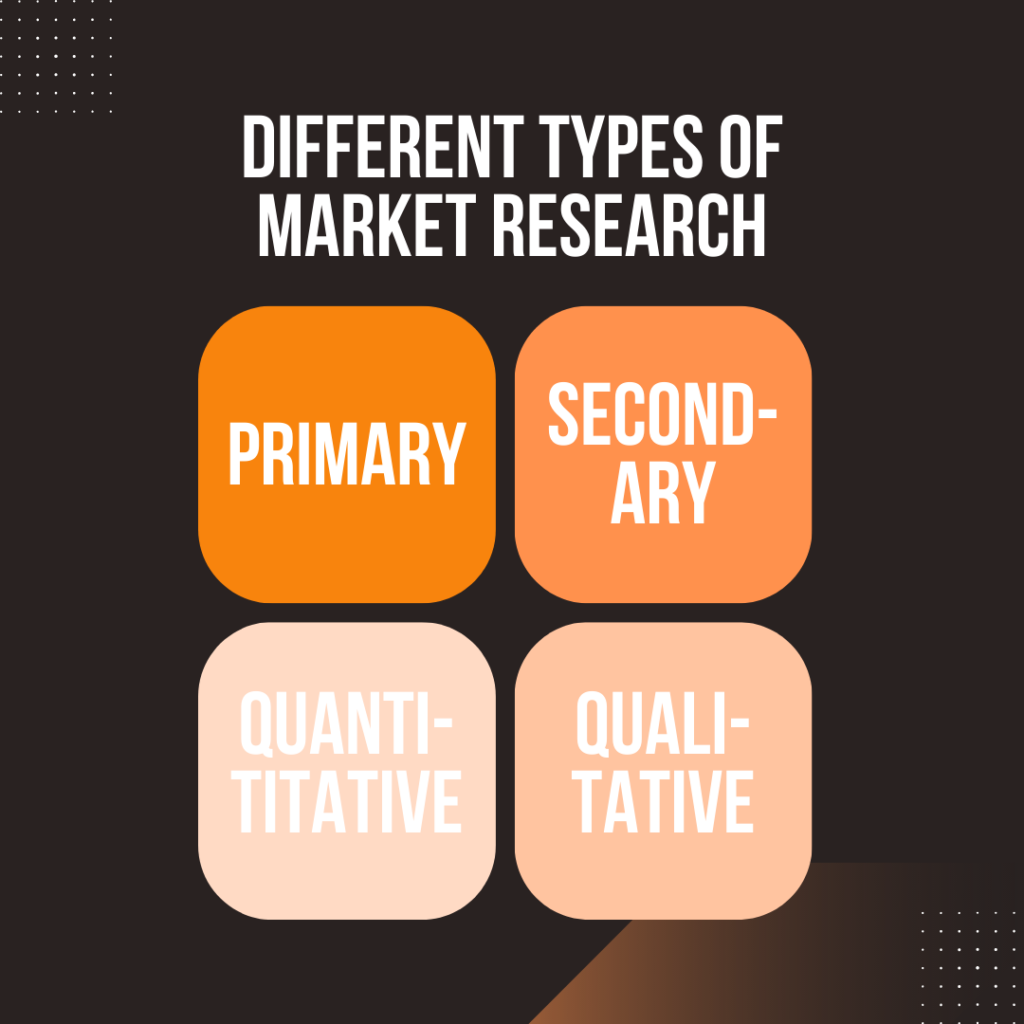To conduct effective market research and create your marketing strategies – first, you need to define the principles.
Table of Contents
Types of Research
When carrying out market research, it’s essential to understand the different types of market research.

Primary Research
In short terms, Primary Research is any research that you conduct yourself, not citing other sources’ work. Examples of Primary Research include questionnaires, interviews, surveys, etc. Through these channels, you can strengthen your strategies using the data you have discovered.
Arguably, Primary Research is the most valuable type of market research because it’s particular to the customer base. Primary Research allows you to get candid details on business strengths and weaknesses to understand the customer experience.
Secondary Research
Secondary Research is data that someone else has collected from what already exists within the market, such as blogs, articles, infographics, etc.
This type of research helps get a better understanding of the industry as a whole. You’ll be able to find how competitors operate, important industry statistics, and other valuable insights you can use to help create more informed marketing strategies.
Quantitative Research
Quantitative Research is undertaken by using a structured approach, with a narrower focus. It asks closed-ended questions that are used to confirm or test theories.
This data is generally in numerical form that is then placed in categories.
Benefits of Quantitative Research
Can be tested and checked. The ability to replicate both the test and results is a significant component of Quantitative Research. The careful experimental design allows for your data to be more reliable, which means that less argument can take place on its integrity since anyone with access will be able to do so for themselves.
Straightforward analysis. Quantitative Research is great because the type of results will tell you which statistical tests are appropriate to use. This makes interpreting your findings straightforward and less open to error or subjectivity.
Prestige. It is crucial to be aware that Quantitative Research can have a high value and may impress people. This type of study involves complex mathematics, which means it’s not easy for everyone else who reads about these findings or learns more from them in general – but this could work out well if you’re looking into investing strategies.
Drawbacks of Quantitative Research
False focus on numbers. Quantitative Research can be limited in its pursuit of concrete, statistical relationships which leads to researchers overlooking broader themes and losing sight of the big picture. Solely focusing on numbers means that you run a risk of missing surprising information that will benefit your business
Difficulty setting up a research model. To get the most out of your research, you should carefully develop a hypothesis and set up an effective model for collecting data. Any errors in processing or bias on behalf of researchers can invalidate all findings; even coming up with questions may not always be objective since they reflect personal opinion.
Can be misleading. Many people think that because Quantitative Research is based on statistics, it’s more credible or scientific than observational qualitative studies. Although, both kinds of inquiry can be subjective and misleading with the opinions and biases of a researcher influencing results earlier in this process for quantitative approaches compared to those who conduct qualitative investigations.
Qualitative Research
Qualitative Research is research undertaken using an unstructured approach. This is done by collecting opinions and thoughts with open-ended questions such as “how?” and “why?” it allows more detail to be given.
Benefits of Qualitative Research
It provides more content that is useful for practical application. Authenticity is the key to building relationships in today’s world. Understanding what someone defines themselves by, and why they make decisions every day can be difficult from an outside perspective because it deals with their life structure which could solve problems for practical application.
It eliminates the potential for bias within the data. When conducting social research, it is easy for biases and preconceived notions to come into play. However, with qualitative methods like surveys or interviews, there can be no judgement passed on the subjects because they look at how people make decisions rather than what happened in advance of those choices being made.
It turns individual experiences into usable data.
The concept of diversity has been a hot topic in today’s business climate because it takes what makes humans different and turns them into something powerful. Quantitative Research allows for collecting data on these unique individual experiences which can lead to new insights.
Drawbacks of Qualitative Research
It creates subjective data. Researchers who take the personal perspective of observation will often have different opinions on what they observed. The accuracy depends entirely upon how much time each researcher spent observing and recording information, but even then there is room for Subjective Personalities in Qualitative Research methods because not everyone sees things equally clearly or confidently.
It takes a lot of time to collect the data points. Qualitative researchers have the potential for usable data points in their studies. However, this also means there’s more uncertainty when it comes to analysing what we find because every element must be sifted through and determined whether or not they are relevant before anything else can happen with them.
It requires researchers to be knowledgeable about what they are reviewing. Qualitative researchers have a unique advantage over quantitative ones because they can ask questions about the industry without being knowledgeable. This allows them to gather information from people who are more likely able to provide insights into what’s happening in their field, which will result in better answers and narrower margins for error.
As you can see, there are many different types of market research. But which one should you use for your business? The answer to that question depends on what you’re trying to achieve with your research. If you need general information about your industry or the overall market, then a survey or poll is the way to go. If you want to know more about how people view your product or service, then focus group interviews would be a better choice.
Whichever type of market research you choose, make sure it’s relevant to your business and goals so you can get the most accurate results possible.




